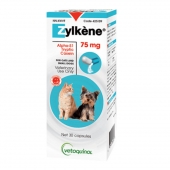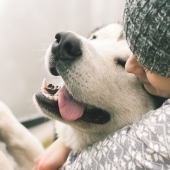Going back to the office more regularly, maybe you don’t have as much time to take care of your puppy. Or maybe your kitten meowing and chasing toys around the house in the middle of the night is making you sleep-deprived. It happens. Pet adoption doesn't always work out. If you’re having doubts after recently adopting a pet, here are a few things to consider.
Could it be a medical issue?
If your pet is refusing to eat, not using their litter box or puppy pad, or scratching constantly, start by ruling out any underlying medical conditions. Symptoms like these could indicate anything from food allergies to parasites or a urinary tract infection. With the help and care from a veterinary clinic, these issues can be treated.
Did your pet have enough time to adjust?
A change of environment can affect an animal’s behaviour. The energetic puppy you fell in love with at the shelter could be feeling insecure in their new home. A cat that seemed shy and quiet at the SPCA could turn out to act destructively when left alone. Look for possible stressors inside your home, such as another pet or children making sudden movements; or consider if the changes could be due to separation anxiety. Give your pet a few weeks to get acquainted with their surroundings.
If you need help, consider hiring an animal trainer or asking your veterinarian about natural supplements designed to decrease animal stress and ease adaptation.
Returning your pet to a shelter
Pet adoption isn’t always a perfect fit. According to the most recent Animal Shelter Statistics Report by Humane Canada, 35% of dogs and 31% of cats entering shelters are surrendered by their owners. If you feel you have exhausted all avenues to improve the situation for you and your adopted pet, the best option may be to return them to the shelter to be placed in a more suitable home. Considering the number of stray animals and cases of abuse rescued by shelters each year, their staff will respect that you’re acting responsibly.
Finding a family for your pet
If your pet comes from a shelter or breeder, check your adoption paperwork to verify if you are responsible for finding a new family for your pet. When things don’t work out, some shelters and breeders require that the animals be returned to them, to make sure cats and dogs are moved to a qualified home after a screening process.
If finding a new home for your pet falls on you, ask if any friends and relatives are looking to adopt. If you’re using social media or are contacted by someone you don’t know closely, insist on meeting them beforehand, at their home, to be certain you’ll be leaving your furry friend in good hands.
Consider fostering a pet for the SPCA
If you’re not sure you’re ready for the long-term commitment of a pet adoption, consider acting as a foster home for the SPCA or a local shelter. Usually, you will be entrusted with a pet for at least a one-month period. These could be orphans or animals with minor injuries or who require medication. You’ll then be free to step away, foster another animal, or maybe adopt the one you’ve grown attached to.





